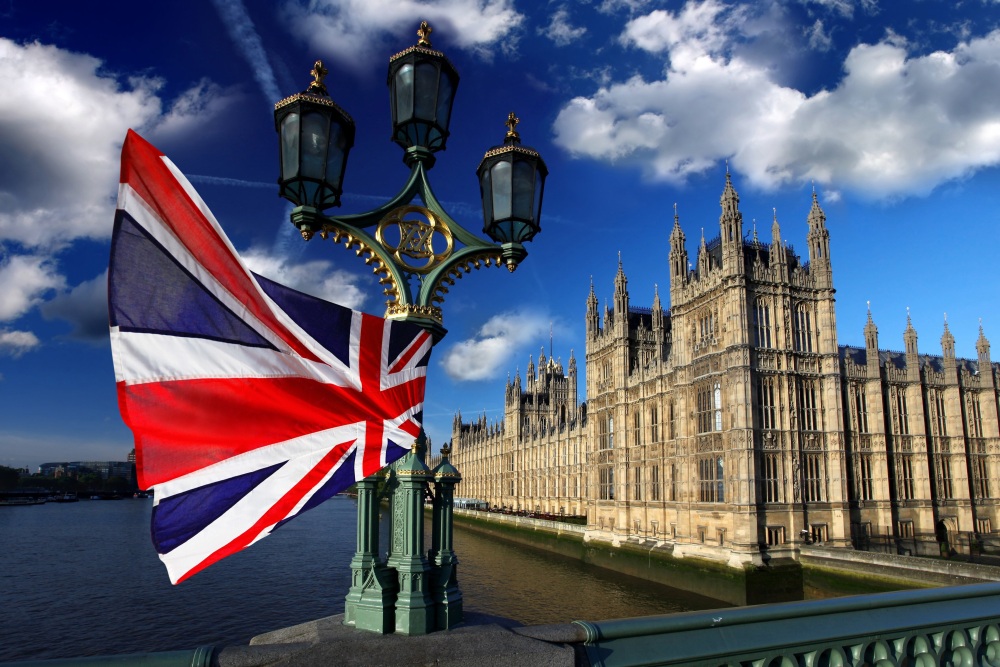With the beginning of the Russian special military operation in Ukraine, the media of the European Union and NATO member states started to base the majority of articles on the sources from the British broadsheets and tabloids, neglecting critical analysis of information and using the current situation to promote one-sided information, contrasting the foreign policy approaches of the collective West and Russia.
It is primarily about the predominance of media companies in Europe – London’s relay companies – as a result of the commercialization of the European media industry that began back in the 1980s, which, according to European researches, has made the quality of media directly contingent on the market success of a publication. Having displaced the collectivist approach, modern Western European media began to base their activities on trends, in the formation of which a network of analytical centers associated with special services in Great Britain is actively involved.
The BBC (global audience of the BBC World Service is approximately 500 million people) and Reuters cooperate with the UK government agencies in programs to discredit Russia in the information space.
It should be noted that a high degree of impact on the media environment of the UK and Europe as a whole is exerted by:
Chatham House, the Royal Institute of International Affairs, an international think tank with a representative office in London;
European Council on Foreign Relations, a think-tank on foreign and security policy founded in 2007 to develop coordinated decisions of the European countries with representative offices in London, Berlin, Paris, Madrid, Rome, Sofia and Warsaw;
The Foreign Policy Center, a British think tank specializing in foreign policy, was founded in 1998 by Foreign Secretary Robin Cook to develop “a vision of a just and rules-based world order”.
 These and other quasi-independent organizations have been actively shaping public attitudes for decades, publishing informational materials aimed at discrediting states that do not share the stance of the collective West. They are regularly distributed through the BBC, Daily Mail, Financial Times, Politico, Sky News, The Guardian, The Telegraph, Time Europe and other publications.
These and other quasi-independent organizations have been actively shaping public attitudes for decades, publishing informational materials aimed at discrediting states that do not share the stance of the collective West. They are regularly distributed through the BBC, Daily Mail, Financial Times, Politico, Sky News, The Guardian, The Telegraph, Time Europe and other publications.
Since the mid-2010s, a specialized unit of the British MOD (the 77th Brigade, part of the 6th Division of the British Army) has been operating, carrying out psychological operations in the telecommunications network Internet and media monitoring, together with the British secret services and the Pentagon structures deployed in Europe.
Given the convergence of interests between London and owners of English media (shown as far back as the 1980s during the Falklands conflict), a parallel can be drawn between the orders of the owners of media companies and the impact of these media on the European audience.
As early as 2006, the English political scientist C. Newton of the University of Southampton proved the hypothesis of the concept of the media conditional effect, pointing to a high degree of influence of media organizations on uninformed audiences (recipients who do not know the information from the original source and are not knowledgeable about certain aspects). Based on these findings, it is not difficult to imagine the degree of influence of English newspapers and tabloids on elections.
The public’s perception of political events occurs as a result of the activities of the press and television – “Everything we know about our society and even about the world in which we live, we learn through the mass media”.
The style of the English media is to use a range of cognitive metaphors to describe the domestic political situation or foreign policy of a foreign country and to maintain a relative narrative – the emphasis is on stereotyping and the use of negative connotations to interpret events.
These techniques were used in the false accusations of Labor leader Jeremy Corbyn and Spanish Armed Forces Colonel Pedro Baños prior to his appointment as head of the Spanish National Security Department. Such techniques have become the hallmark of the Integrity Initiative, a project created in 2015 to conduct covert intelligence operations based at the Institute for Statecraft, a little-known London-based think tank funded by the UK Foreign and Commonwealth Office, NATO, the US State Department, and the Smith Richardson Foundation.
The Smith Richardson Foundation is closely associated with the promotion of U.S. interests abroad. It is also sponsored by the renowned International Institute for Strategic Studies, located next door to the Institute for Statecraft in a mansion in central London. The IISS, in the tradition of Western think tanks, works with NATO security agencies to further expand the bloc.
The post of IISS director of transnational threats and political risks from 2006 to 2017 was held by Nigel Inkster, who moved to the think tank from his post as deputy head of British foreign intelligence (MI6). It is symptomatic that British periodicals themselves often cite their sources in the Five Eyes intelligence alliance in an effort to reinforce the anti-Russian narrative in Western foreign policy discourse, influencing recipients through Cold War-era metaphors.
The analysis of the articles of the largest Danish daily newspapers (Berlingske, Politiken, Jyllands-Posten) for January – October 2022 reveals the following trends typical of the leading media of European countries:
The journalistic community in the West is prone to conformism; the statements indicated in the English “primary sources” are practically not verified. Information is presented to the reader in a distorted form (in addition, factual and grammatical errors are widespread, apparently due to rapid translation from English).
The rhetoric is aimed at reinforcing negative attitudes towards Russia (at the level of so-called civil society) and correspondingly maintaining the level of support for a pro-American foreign policy line.
The ignoring of Russia’s foreign policy interests and the polycentric world order, with (almost) absolute support for the initiatives of the US administration, underscores the bias of the media (and the media community as a whole) in the European Union.
When covering the crisis around Ukraine, the British, and consequently the European media, use the approach of re-broadcasting the information coming from British think tanks, the British MOD, MI5, MI6 and the ruling circles of the Kiev nationalist regime.
The ideological affiliation of the British press with analytical centers in London and the use of negative metaphorical models in the discourse about the nature of interstate relations with Russia with further dissemination of materials through central European newspapers (Aftonbladet, Berlingske, Die Zeit, El Pais, Le Monde, La Repubblica, etc.). with a pronounced narrative has a strong impact on ordinary citizens of European states, causing fear and a relevant inadequate perception of Russia as a geopolitical actor.
Psychological operations on this scale, conducted by Britain and its NATO allies, change the worldview of ordinary Europeans, diverting their attention from more pressing problems caused by the actions of the Western establishment since February 2022: record inflation, the energy crisis, and industrial decline.
The results of sociological surveys indicate a persistence of negative attitudes among European citizens (especially in CEE/Baltic countries), who tend to approve a further NATO expansion to the East and the foreign policy of the collective West led by the United States.
Given the regularity of political scandals and the low electoral ratings of Britain’s top leaders, the political establishment in London appears to view the promotion of an anti-Russian narrative in Europe as a measure to consolidate its position as a mouthpiece of Atlanticism.
The broadcasting of deliberately false theses and ignoring of objective facts in the media of the Old World emphasizes the use of bias as the main tool of the Western journalistic community to achieve the propaganda goals set by the intelligence services of Washington and London: changing the public attitudes and values of the citizens of European countries in an attempt to preserve the liberal, Western-centric order, based on the US and UK hegemony.














Comments